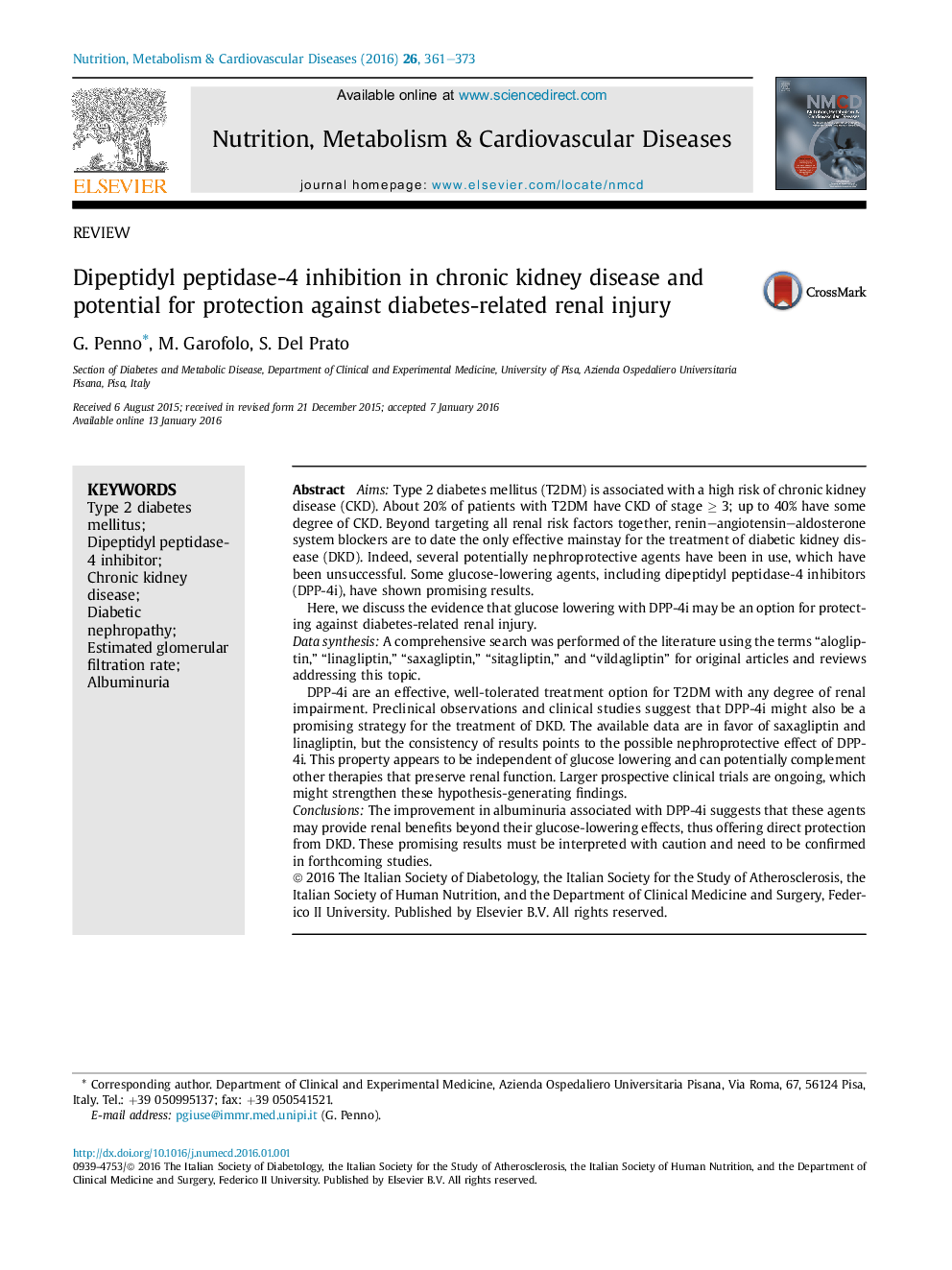| Article ID | Journal | Published Year | Pages | File Type |
|---|---|---|---|---|
| 3001723 | Nutrition, Metabolism and Cardiovascular Diseases | 2016 | 13 Pages |
•About 20% of type 2 diabetic patients (T2DM) have chronic kidney disease (CKD) stage ≥3; up to 40% have some degree of CKD.•Some classes of glucose-lowering agents might exert potentially nephroprotective effects.•Dipeptidyl peptidase-4 inhibitors (DPP-4i) are an effective treatment option for patients with T2DM and any degree of CKD.•The reduction in albuminuria caused by DPP-4i suggests they may provide renal benefits beyond the glucose-lowering effect.•Consistency of data points to the possibility of the nephroprotective effect of DPP-4i.
AimsType 2 diabetes mellitus (T2DM) is associated with a high risk of chronic kidney disease (CKD). About 20% of patients with T2DM have CKD of stage ≥ 3; up to 40% have some degree of CKD. Beyond targeting all renal risk factors together, renin–angiotensin–aldosterone system blockers are to date the only effective mainstay for the treatment of diabetic kidney disease (DKD). Indeed, several potentially nephroprotective agents have been in use, which have been unsuccessful. Some glucose-lowering agents, including dipeptidyl peptidase-4 inhibitors (DPP-4i), have shown promising results.Here, we discuss the evidence that glucose lowering with DPP-4i may be an option for protecting against diabetes-related renal injury.Data synthesisA comprehensive search was performed of the literature using the terms “alogliptin,” “linagliptin,” “saxagliptin,” “sitagliptin,” and “vildagliptin” for original articles and reviews addressing this topic.DPP-4i are an effective, well-tolerated treatment option for T2DM with any degree of renal impairment. Preclinical observations and clinical studies suggest that DPP-4i might also be a promising strategy for the treatment of DKD. The available data are in favor of saxagliptin and linagliptin, but the consistency of results points to the possible nephroprotective effect of DPP-4i. This property appears to be independent of glucose lowering and can potentially complement other therapies that preserve renal function. Larger prospective clinical trials are ongoing, which might strengthen these hypothesis-generating findings.ConclusionsThe improvement in albuminuria associated with DPP-4i suggests that these agents may provide renal benefits beyond their glucose-lowering effects, thus offering direct protection from DKD. These promising results must be interpreted with caution and need to be confirmed in forthcoming studies.
